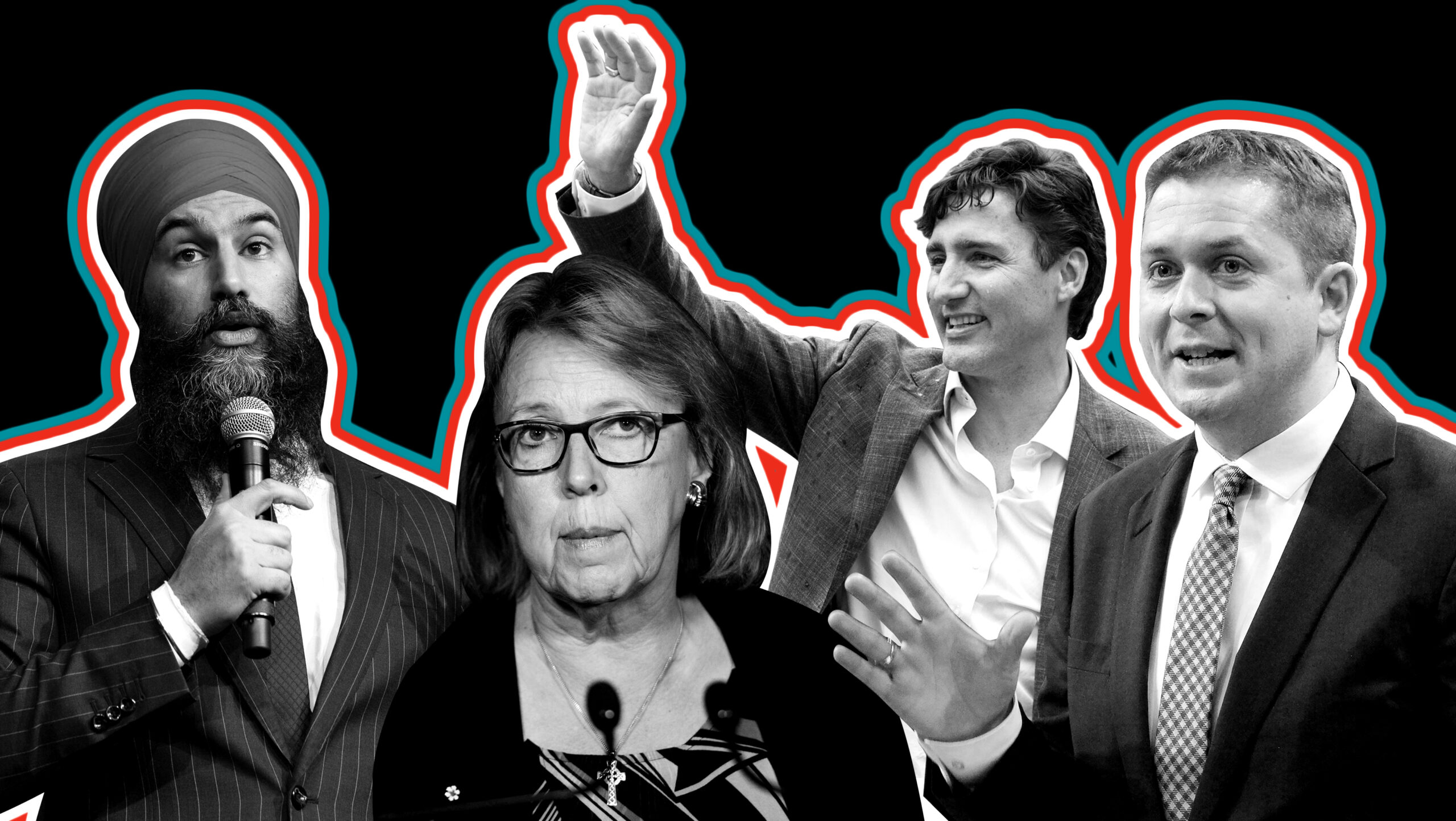To get Xtra Weekly in your inbox, subscribe here.
WEEKLY EXPLAINER
This election campaign has been filled with controversies, bad choices and lackluster apologies. Federal leaders have also used queer issues as a pitch to voters—and one of those issues is conversion therapy.
Last week, the Liberals announced that, if elected, they’ll amend the Criminal Code to make conversion therapy illegal throughout Canada. Both the Green Party and the NDP have also promised the same. On Monday, Conservative leader Andrew Scheer said he “support[s] legislative changes that aim to stop the practice of people who are bullied or harassed or are threatened in any way because of their sexual orientation,” and that a Conservative government would “support and introduce legislation that protects LGBTQ Canadians.” However, Scheer did not specify if this would include a ban on conversion therapy.
On Wednesday, The Vancouver Sun published a story that said Heather Leung, the Conservative candidate for Burnaby North-Seymour, advocates for conversion therapy to help people escape their “perverted homosexual lifestyle.” When asked about Leung’s statement during his stop in Vancouver last week, Scheer reiterated that his party “will always stand up for LGBTQ Canadians and their fundamental human rights.”
So what’s up with federal parties taking on this issue?
Here’s a refresher Supporters of conversion therapy claim it can change the sexual orientation of LGBTQ2 people through prayer and/or talk therapy. However, there’s no scientific research that supports this at all. The Canadian Psychological Association denounced the practice in 2015, saying that the so-called “therapy” can result in damaging outcomes for individuals such as depression, negative self-image and a feeling of personal failure.
In February of this year, NDP MP Sheri Benson presented a petition to the House of Commons calling on the federal government to ban the use of conversion therapy on children.
The government responded in March, calling conversion therapies “immoral” and maintaining that those practices don’t reflect the government’s—or Canadian—values. But since conversion therapy is often administered by members of the health profession, the government says that it’s largely a provincial and territorial issue. Currently, if a person is alleged to have subjected someone to conversion therapy, the penalty could be administered through existing sections of the Criminal Code; this means that if a person is forced to undergo conversion therapy, criminal charges like kidnapping, assault and forcible confinement may apply.
In April 2019, Liberal senator Serge Joyal tabled Bill S-260, which aims to amend the Criminal Code of Canada and make it an offence to advertise conversion therapy to anyone under the age of 18. Joyal’s bill came as a result of Benson’s petition. At the time, via a statement to HuffPost Canada, Benson said that she’s pleased to see Joyal continue to fight to get rid of conversion therapy in Canada.
Right now, Canada has no national ban on the practice, but Ontario, Manitoba, Nova Scotia and the City of Vancouver have placed restrictions on it. In May, Megan Jones explored why and how conversion therapy is still legal in Canada.
So why is it a problem that politicians use conversion therapy to win the progressive vote? To help explain, here’s Erica Lenti, senior editor and editor of Xtra’s pop-up newsletter, Rainbow Votes 2019 (you can subscribe to the newsletter here).
On the surface, it’s great that party leaders are raising LGBTQ2 issues, like conversion therapy, on the campaign trail. Our communities, after all, are always looking for more visibility and representation—especially at a time when LGBTQ2 people are continuously under attack. We saw this as recently as last weekend in Toronto, when a socially conservative Christian group marched through the gay village, clashing with queer and trans people for several city blocks.
But the intent with which leaders are bringing forth LGBTQ2 issues is what really matters.
As RM Vaughan wrote in early September—after the Liberal Party called out Scheer’s 2005 remarks on same-sex marriage—so much talk of LGBTQ2 communities is tied to party benefit rather than for our benefit. Calling out a political rival’s homophobia in this way only serves to bolster the party making the criticism, allowing it to position itself as socially progressive. As Vaughan put it: “We are not real communities to our federal leaders, we’re a metonym for all things progressive and forward-thinking.”
And those call-outs do little to actually support our communities, who are less worried about who marches in Pride or 14-year-old remarks on gay marriage than they are interested in pressing issues like the ongoing blood ban, the criminalization of HIV non-disclosure and the treatment of LGBTQ2 refugees.
It’s why election campaign calls to ban conversion therapy feel shallow. Of course, ending the practice across the country is a priority for our communities. But choosing to announce a party’s intent to do so during a campaign reads as strategic—especially for the Liberals, who turned down their shot to do so earlier this year.
If you want to hear LGBTQ2 Canadians and community organizations question political candidates, you’ll have a chance next week. Join us for a series of town hall debates on LGBTQ2 issues in the Canadian federal election. Here’s how to participate in Vancouver, Toronto, Montreal, Edmonton, Ottawa or online.
Wait, there’s more! Click here to subscribe to Xtra Weekly for roundups of LGBTQ2 news, culture and stories.




 Why you can trust Xtra
Why you can trust Xtra


